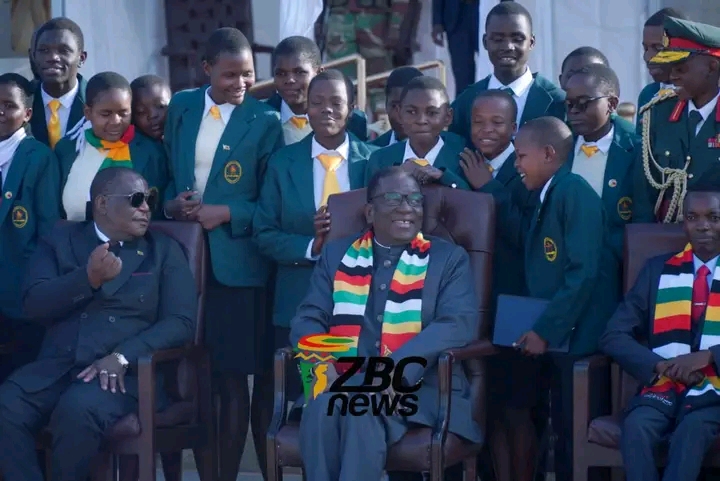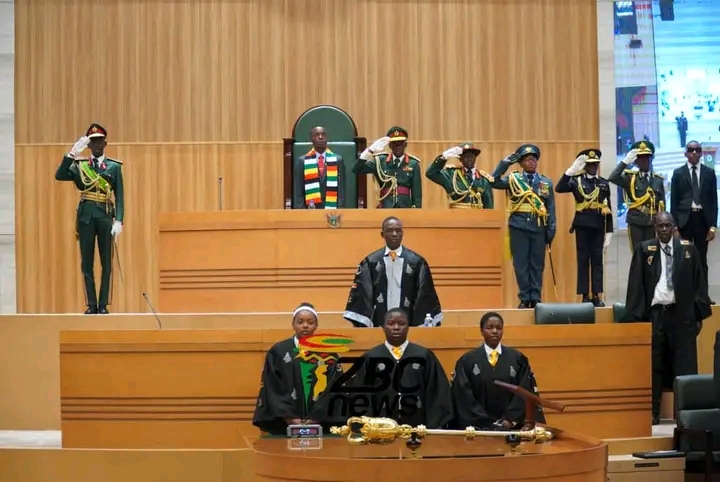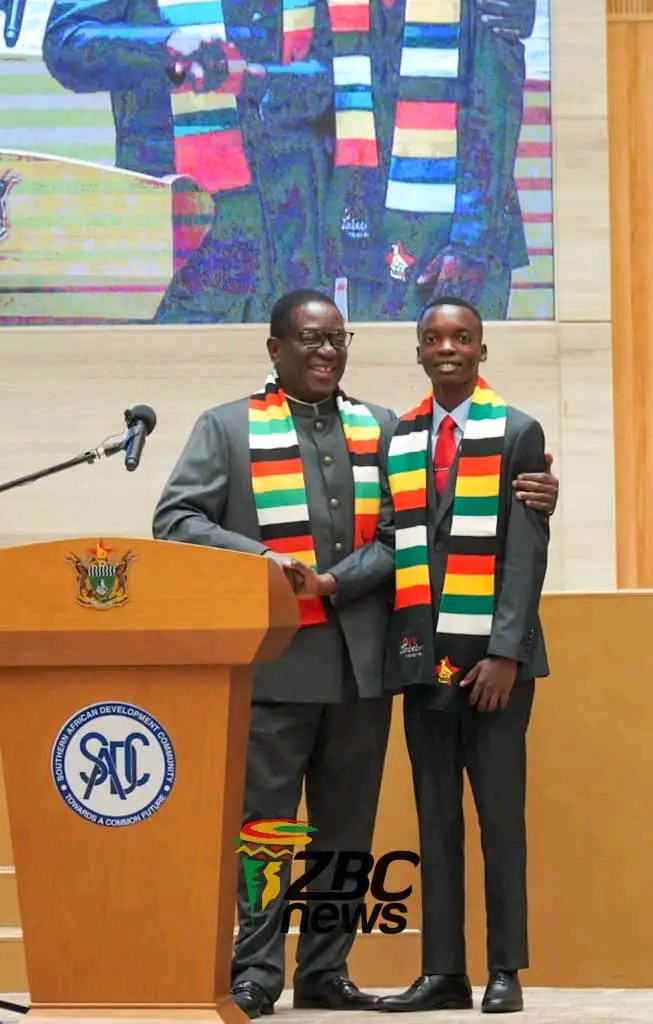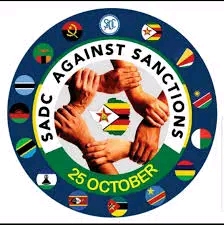President Emmerson Mnangagwa with the new Child President, Lionel Mazarire at the 33rd Session of the Junior Parliament. Pic Credit: ZBC
By Dickson Bandera
President Emmerson Mnangagwa has called for the Junior Parliament of Zimbabwe to evolve beyond a symbolic platform and become a real engine for shaping national policy, leadership, and innovation.
Speaking at the official opening of the 33rd Session of the Junior Parliament and the commemoration of the Day of the African Child at the New Parliament Building in Mt Hampden, the President challenged child leaders to be active participants in the country’s developmental vision.
In a departure from mere ceremonial acknowledgement, the Head of State emphasized that the voices of child parliamentarians should directly inform Zimbabwe’s development trajectory, especially in the context of Vision 2030.
“This forum must not be reduced to a mere talk show,” President Mnangagwa said. “The output of the Junior Parliament must inform our national development priorities as well as programmes and projects.”

The President’s remarks underscore a deeper vision—one in which children are not just passive beneficiaries of state policy but are recognised as architects of Zimbabwe’s future.
Central to this vision is the newly launched Junior Parliament Alumni Network, which the President described as a “think-tank and mentorship engine” aimed at sustaining youth voices in national dialogue.
“The leadership nurtured in this august house remains a voice in national discussions concerning children and the youth,” he said.
The call to elevate child leaders comes at a time when Zimbabwe is rolling out progressive frameworks such as the National Youth and Adolescent Protection and Safeguarding Policy and expanding access to digital and vocational education.
With over 1.5 million children benefiting from the Basic Education Assistance Module (BEAM) and a digitisation thrust under Smart Zimbabwe 2030, the government is signalling a generational shift in policy.

Observers say the new push for youth-led policy input represents a maturing democracy that values inter-generational dialogue. It also affirms the significance of putting children in leadership roles—not as decoration, but as decision-makers.
“The fact that we have a Child President and Speaker of the Junior Parliament, and that they are given a national platform, demonstrates that Zimbabwe is grooming young leaders to understand governance from an early age,” said one senior official who attended the event.
Indeed, the official recognition of Lionel Mazarire as the 33rd Child President and Michael Ndambani as Speaker was more than ceremonial—it was a symbolic handing over of trust, responsibility, and vision. The President urged these young leaders to lead by example:
“You are entrusted not only to speak but to lead… Reject peer pressure, drug and substance abuse, as well as violence. Shun all other social ills, as these undermine the prospects of a brighter and prosperous future.”
The occasion also reflected on the 49th anniversary of the 1976 Soweto Uprising, with the President reminding young Zimbabweans that the bravery of past generations should inspire today’s youth to fight for justice, equality, and national progress.
As the applause rang through the majestic dome of the New Parliament, one thing was clear: the children were not just being heard—they were being called to serve, shape, and lead.
The children of Zimbabwe, it seems, are now among the builders.


